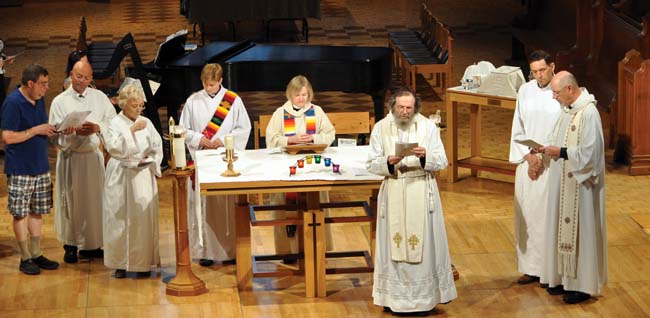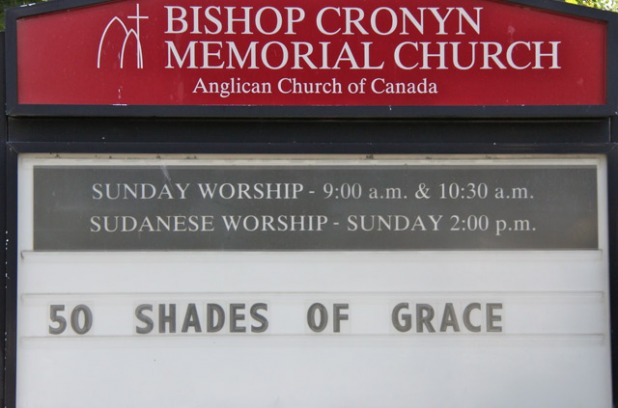If present trends continue, the United Church of Canada will only have around 250,000 members in 13 years’ time. But who cares about people when there’s Creation to worry about?
“Creation” is the predominant obsession of the United Church: it wants a carbon tax, no Northern Gateway oil pipeline, no oilsands; in fact, no fossil fuels at all. An irony that is lost on it is that it is about to become a fossil itself.
Not unlike prissy puritans of yore, the United Church of Canada seems to enjoy defining itself by what it wants to suppress; although it would love to impose its carbon puritanism on absolutely everyone, it unlikely to succeed since very few listen to or care about the tarradiddles that ooze like noxious secretions from the deliberations of its governing body.
And if that isn’t enough to warrant consigning the United Church to the ecclesial junk-yard, it presses home its case by having a venomous hatred of Israel.
From here:
As the United Church of Canada struggles to fill many of its pews, the denomination will delve into contentious political issues at its 41st General Council in Ottawa this week.
“An appropriate price put on carbon, such as a carbon tax, would penalize the use of fossil fuels and could generate revenue for sustainable energy,” a group of high-ranking church officials from Toronto argues in its submission to delegates.
The 130 proposals up for debate also include a ban on oilsands expansion, opposing the Northern Gateway oil pipeline proposal and a partial boycott of Israeli products.
Other proposals call for improvement of the world’s oceans through the transmission of “healing love to Creation” and for the inclusion of the gay rights activists’ “rainbow symbol” in church offices and websites.
However, the United Church of Canada also has to deal with a dramatic decline in membership: membership has dipped from more than a million in the mid-1960s to less than 500,000 now.
Retired United Church minister David Ewart estimates that by 2025 membership will drop to around 250,000.


 To coincide with Vancouver’s Pride Day, Christ Church Cathedral has a “Pride Day service”. It managed to draw 80 people this year – in a facility that will hold 600. So you can see by the numbers it is attracting how successful the Diocese of New Westminster has been in tapping in to the spiritual pulse of the nation.
To coincide with Vancouver’s Pride Day, Christ Church Cathedral has a “Pride Day service”. It managed to draw 80 people this year – in a facility that will hold 600. So you can see by the numbers it is attracting how successful the Diocese of New Westminster has been in tapping in to the spiritual pulse of the nation.
 Well good, you might be thinking, serves him right for being an atheist. The atheist in question, Pete the Atheist, has persuaded
Well good, you might be thinking, serves him right for being an atheist. The atheist in question, Pete the Atheist, has persuaded